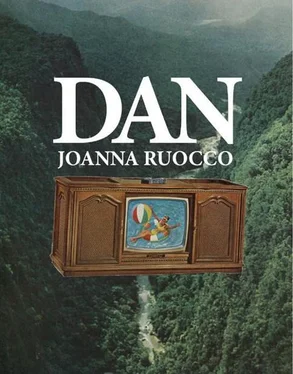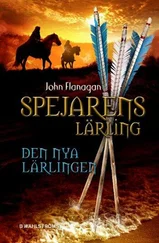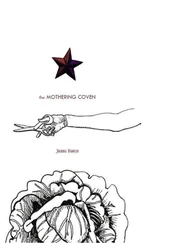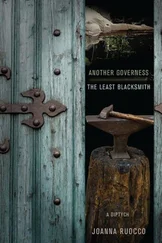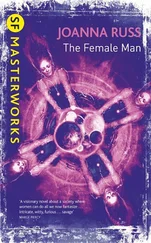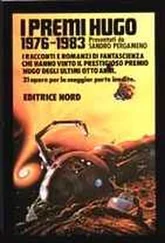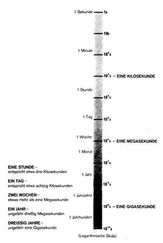MELBA ZUZZO stood in the yard chewing tiredly on several pieces of gum. The day had barely started, and, as soon as it was over, another day was bound to begin. When would it end?
If only there weren’t leap years, thought Melba. Every 365 days, the calendar would lose several hours and, by now, there wouldn’t be any days left at all.
Melba strapped a helmet to her head. Beneath her feet, the yard felt compacted, dead herbage dried into a pleasant thatch. The un-vented helmet was lined with a squishy foam that served no purpose unless she brought her head into some kind of contact. She stood, helmeted, preparing to launch herself forward.
For a moment, she was held in position, perhaps by the air.
Nearly six quadrillion tons in all, thought Melba. As she recalled this fact, she felt the weight of it. She considered lying down. But was it wise? Melba’s mother had once warned her against lying down out of doors in foam.
“Pam Dempsey!” her mother had cried. It was summer and a downpour had cleared the pollen from the air. Melba and her mother had gone for an uncharacteristic walk together through the center of Dan, enjoying the freshness. They sat on a propane tank in the sunlight, passing a baggy of mulberries back and forth over the tank’s bright red cap.
“Pudgy Pam!” Melba’s mother shook her head admonishingly. “Pam the ham! Pam Dempsey.” Melba’s mother mashed the baggy of mulberries in her fist. “Poor Pam! She wandered away from the Halloween parade in her lobster suit and never returned. ‘I’m just going to nap in the woods, Gigi,’ she said. A harmless nap in the woods. I thought nothing of it. Pam Dempsey,” sighed Melba’s mother. “She put up quite a struggle, but all she could do in that floppy foam suit was flip herself over, supine, prone, supine, prone, or push herself around in circles with her feet, that’s what the authorities said when they saw the patterns in the disrupted leaves. The body was gone, of course, dragged away by coydogs.”
The foothills around the village of Dan were densely wooded, and it was true that at night the dells echoed with the mating songs of coydogs. Despite these congruencies, Melba had found it difficult to accept certain details of her mother’s story. Her mother never understood Pam Dempsey, thought Melba. Gigi Zuzzo was always striving! She was always running about, eating pralines and searching for lost keys, making vigorous checkmarks on secret lists she stowed in her purse or executing a series of invisible but excruciating isometric exercises. Her mother could not understand why a girl might abandon a parade to lie quietly in a bed of leaves.
Melba imagined hundreds of discombobulated children, their faces garishly painted, bouncing around in plastic jumpers, their mouths crammed with Swedish Fish, a few of them tooting handheld noisemaking devices, others hurling gourds. She imagined Pam Dempsey slipping away from the throngs, walking slowly into the forest, and lying down in the leaves. As night fell, she would have felt peaceful and warm in her lobster suit, blinking up at the forest canopy, watching as frost blanched the humid branches of the maple trees.
Melba imagined the pleasant pressures exerted on Pam Dempsey’s limbs by the mouths of many coydogs, their teeth battened by the foam of a lobster suit. Pam would have kept very still. She would have let herself be pulled into the foothills by coydogs, and then beyond the foothills into another town, or even all the way to the sea.
“Pam Dempsey!” said Melba now in the yard. The dense air absorbed the sound in an instant.
Sometimes Melba wondered if Dan was under some sort of quarantine. It seemed more difficult to come and go from Dan than could be accounted for by simply the mud and the ice and the mountains with their crevasses and deadfall snares. But who could have quarantined Dan? The federal government was rumored to have such powers, but the federal government seemed extremely remote, and Melba had heard that the federal government did not even exist in a state — as did Dan, and Henderson, another town Melba’s mother mentioned from time to time — but rather occupied a nebulous zone, almost but not quite its own country.
All at once, the elasticity of Melba’s gum exhausted itself. She spat a hard blue bean into the darkness of early morning. At the edge of the yard, the swarming thicket of black currant bushes and slime-fluxing hemlocks had grown thicker in the night. Melba approached, cautiously, arms extended. She pinched a currant between her fingers and sniffed. She found the smell distinctive, like the feces of a fisher cat. Earlier, Melba had found traces of such feces tracked through her house. But perhaps those had not been the feces of a fisher cat? Perhaps the small stains were so many trampled currants?
There is no use scrutinizing stains, thought Melba. At least with the naked eye. Their compositions are so complex.
With some difficulty Melba pushed into the thicket and extracted her bicycle from its caul of humus. As she pedaled through Dan she fixed her eyes on the dim grid of rooftops that dropped down the slope of the mountain toward the leachfield. It was an election year, and many of the rooftops sported slogans, even the mansard of the European, Helmut Pirm. Melba steered her bicycle into the large drain that ran beneath Lops Street, the warm water spraying up, rinsing the mud from the chain and the hubs.
Melba noticed a large bird running beside her, wings slightly outspread so that Melba had to assume they created significant drag, enough drag to strain the legs of the bird, which were doubtlessly strained already by the bird’s swift pace as it ran beside her, gaining on her, through the drain. Melba pedaled faster and exited the drain well in advance of the bird. She felt flushed and triumphant and rang her bell several times, laughing. Mark Rand, Melba’s landlord, lived on Satin Street, and Melba rang her bell again as she passed his house. Melba didn’t mind Mark Rand. He was short and personable, and even though he had attached earlobes, he seemed trustworthy to Melba. Still, she wished he wouldn’t store his agricultural chemicals in the shed behind her house. Shortly after she’d moved into the house on Hotot Street, she surprised Mark Rand pushing a hand-truck of damaged vats across the yard. Melba stood with her coffee watching him struggle over the thick ferns and the scat-like piles of oak galls.
“Hello, Mr. Rand,” said Melba and Mark Rand grunted at her over the hand-truck.
“Hello,” grunted Mark Rand. Then he paused, letting the base of the hand-truck rest on a coil of old garden hose so that he could address her more fully. “I am joyful, Melba,” said Mark Rand. “There is nothing sweeter to the eyes of a landlord than the sight of his tenant taking her ease on the well-maintained back stairs of a high-quality rental unit, her hand cozying a mug of hot beverage. Moments like these remind me why I remain committed to property management, instead of devoting myself full time to the more lucrative business of antiques.” He gestured to the vats on the hand-truck, which were, Melba noticed, extremely old. “I could auction these,” continued Mark Rand. “And for quite a bit of money, too, but it wouldn’t feel right. I want you to enjoy them, Melba.”
“Thank you, Mr. Rand,” said Melba.
“Don’t touch them,” said Mark Rand. “But know that your shed is filled with priceless antiques. Take pride in them.”
Of course the vats were antiques, thought Melba. Mark Rand’s agricultural chemicals must have been left over from the days when the town of Dan was a pleasing patchwork of family farms crisscrossed by sportive sheep and grains of golden pollen. Such a Dan scarcely seemed possible.
Читать дальше
